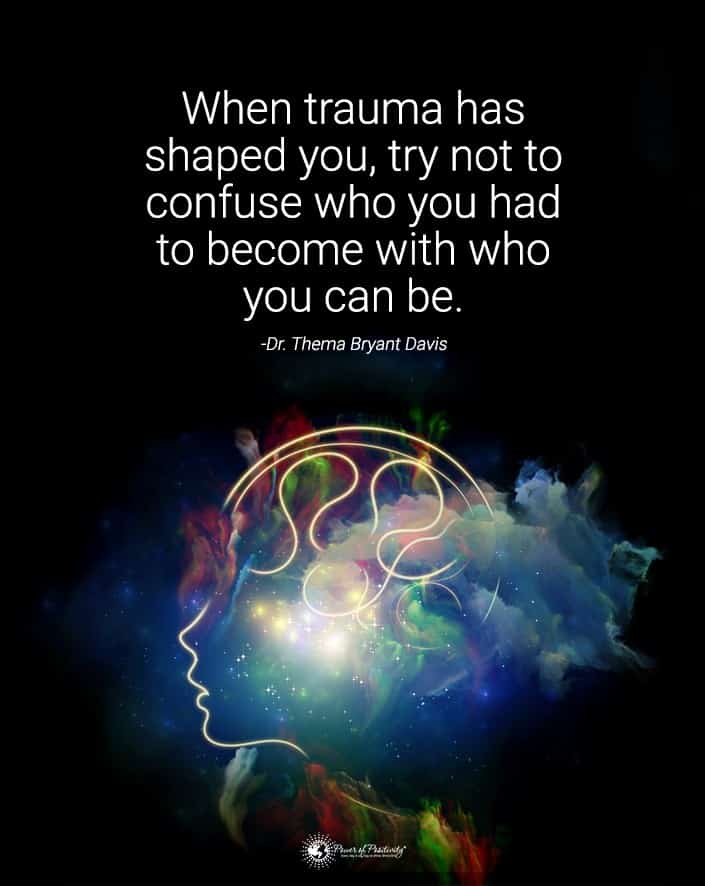A traumatic event shocks or scares you. It puts you in danger, either physically or emotionally. A person who experiences trauma can feel a wide range of emotions right after and long after the event. We will explore twelve science-backed suggestions for overcoming emotional and physical traumatic feelings.
What can cause traumatic feelings?
There is a long list of experiences that can cause you emotional trauma. Some of these include
- Natural disasters-Earthquakes, hurricanes, tornadoes, or floods
- Accidents-A car accident, seeing a drowning, or witnessing a horrible accident
- Assault-Rape, abuse, mass shootings, or terrorist attack.
Different responses to trauma
Traumatic situations can affect you emotionally, physically, behaviorally, socially, or cognitively.Traumatic Feelings Due to Emotions:
Emotional reactions to trauma may produce feelings of anger, fear, shame, or sadness. Processing emotions can be difficult for some individuals, causing them to deny their feelings, which can cause a lack of emotions or a feeling numb emotionally.
Traumatic Feelings Due to Physical Health:
Physical reactions to trauma can include headaches, stomach pain, insomnia, racing heart, and being jumpy. Other physical problems after a traumatic experience include the following:
- Heart problems and circulation conditions
- Trouble breathing
- Skin disorders
- Autoimmune disorders
- Stomach disorders
- Joint pain
Cognitive Causes of Traumatic Feelings
Cognitive reactions to trauma are common. Studies found trauma challenges you at the very core of your understanding of life. You suddenly realize the world may not be as safe as you thought it was. Trauma challenges your expectations that you can protect yourself.
Behavioral Reactions to Traumatic Feelings
Behavioral reactions to trauma occur when you engage in a particular behavior to cope with the after-effects of the trauma. You may try to reduce your feelings of stress with alcohol, overeating, high-risk behaviors, or self-injury. Other people suddenly become aggressive or act out their trauma.
Twelve Habits to Help You Let Go of Traumatic Feelings
Here are some positive changes you can make to let go of negativity.
1 – Give yourself time to recover from those traumatic feelings
Getting over your traumatic feelings can take time. Don’t rush it. Processing your emotions, letting go of negative thoughts and feelings are part of healing. You may need to grieve the loss of someone or something. As you go through these traumatic feelings, remember you’re not alone. It’s thought that approximately 70% of adults in the United States experience a traumatic event at least once. Although knowing that it’s common doesn’t change what you went through, but it helps you see that you’re not alone. So, give yourself the time you need as you let go of your traumatic feelings.
2 – Find a support group
Talking to other people who have gone through similar trauma can be helpful to you.
When people share memories of a traumatic event, they have different perceptions of how things happened. Things stand out to them in a way that you may not have thought about. As you hear their different perspectives on similar experiences, you feel less trapped by the trauma.
3 – Face the facts about your traumatic feelings
This advice can be one of the most challenging things for you to do after trauma. It’s tempting to want to ignore what happened. But a crucial part of your recovery is learning to be okay with your memories of the trauma. When things trigger these memories, don’t avoid them. Choose to face your negative thoughts and feelings head-on. This approach helps you deal with them and enables you to heal. It’s tempting to avoid talking about the worst parts. Maybe you feel humiliated, or you’re scared to think about it. You may worry that you’ll fall apart when you talk about it. Or you think no one understands what you went through.
Traumatic feelings are messy. It produces a jumble of emotions. If you don’t talk it out, it will control you. Even if you don’t know what to say, that’s okay. Part of processing the trauma means making some sense of it. Talk to a trusted friend, a family member, your pastor, or even start journaling what happened.
4 – Laughter
Laughter is good for you. An ancient proverb says this:
“A joyful heart is good medicine, but a broken spirit dries up the bones.” (Proverbs 17:22).
The literal meaning is a joyful heart causes good healing. It turns out; the ancients knew something about the power of laughter. Research says that laughter has positive effects on your body when you engage it regularly. After a traumatic event, it’s understandable that you don’t feel like laughing, but as time passes, smile. Little by little, practice these ideas to put laughter back into your life.
- Smile: Many suggest that smiling is contagious. Smiling activates mirror neurons in human brains, sort of like how yawning makes the people around you yawn. So, smile and watch others around you follow your example.
- Tell jokes: According to research, people who tell good jokes are more likely to get a raise or promotion.
- Be silly: Do silly things that make you laugh. Here are a few suggestions, if you’re brave enough:
- Go to MacDonalds’s and ask for fries without potatoes
- Go to a pet store and buy birdseed. At the checkout, ask the person how long it will take for the birds to grow.
- Sit in your car and point a hairdryer at people driving by. See if they slow down.
- Call your friend and tell them you can’t talk right now.
If you’re interested in more zany ideas, check out these. Some of them are over the top! Even if you’re not brave enough to do these in public, you’ll get a good laugh just reading them.
5 – Avoid isolating
After experiencing trauma, It’s tempting to isolate yourself from your friends and family.
Withdrawing from society is a common side effect of trauma. Your friends and family may feel some of the same awkwardness as you. Being with these loved ones is essential to your recovery, so don’t withdraw from them. Even if you can’t talk about the trauma immediately, it’s good to be with the people you love and trust.
6 – Get professional help
There is so much stress that comes from a traumatic event. You may feel sad, fearful, angry, depressed, or have grief. If these feelings persist and interfere with your ability to do life, it may be helpful to get professional help. A mental health expert can walk you through some things you are feeling.
7 – Press into your faith
Remember to press into your faith when dealing with traumatic feelings. It’s in the hard times that your faith is tested. Suffering is a common human experience that helps you recognize your need for God. Attend church services, talk to your pastor, or read books on suffering to help you draw closer to God and find peace.
8 – Have a balanced lifestyle
As much as possible, try to keep a daily routine. Incorporate a balanced lifestyle with regular meals, daily exercise, and get at least 7 to 8 hours of sleep. It may seem small, but routine can bring peace and a sense of control into your life.
9 – Exercise
Exercise reduces your adrenaline and cortisol stress hormones. It stimulates your body to produce chemicals in your brain that improve your mood. It improves your thinking and memory so you can concentrate better and feel mentally sharp. Exercise also causes the growth of new brain cells. Studies show that aerobic exercise can be an effective therapy for people with PTSD. Some of the best exercises you can do to help you let go of your traumatic feelings include
- Running
- Biking
- Hiking
- Swimming
- Fast walking
- Team sports
- Yoga
- Tai chi
10 – Take care of your body
Ongoing stress because of trauma harms your body. You’re more prone to weight gain, digestive problems, fatigue, or moodiness when going through trauma. Eating nutritious foods helps your body deal better with stress. Include these foods in your diet to help you let go of traumatic feelings.
Carbohydrates
Carbs help increase your serotonin levels. Serotonin regulates your mood, lowers anxiety, and makes you happier. Low levels of serotonin link to depression. Eat healthy carbohydrates like the following:
- Sweet potatoes
- Beans
- Eggs
- Whole grains
- Fruits
Vitamin B
B vitamins impact your energy levels and brain function. It helps your body fight infection. Vitamin B6 produces serotonin, which lowers your anxiety and boosts your mood. Good sources of B vitamins are these:
- Lentils
- Black beans
- Wheat germ
- Cereals
- Leafy greens
- Tuna
- Salmon
- Milk or yogurt
- Chickpeas
- Bananas
- Avocado
11 – Mindfulness
Mindfulness allows you to notice the things around you more profoundly. It helps you relax and let go of the anxiety related to your traumatic feelings. Try deep breathing or these relaxing techniques to release your negative thoughts.
- Walk outside and enjoy the sounds and smells
- Notice colors in your home or your clothing
- Eat a meal enjoy the various flavors of each food
- Listen to music and enjoy the notes or the different instruments
12 – Do normal things without talking about the traumatic feelings
After you’ve experienced trauma, you feel different. You wonder if you’ll ever feel normal again. It takes time to get over these feelings of being different. One thing you can do is to try to do everyday things with other people without talking about the traumatic feelings. Go out to a restaurant. Hang with your buddies at a sporting event. Doing these simple things is part of your healing process.
Final Thoughts on Letting Go of Traumatic Feelings
It can be tricky to let go of traumatic feelings that become ingrained in your soul. But once you absolve yourself of the weight of your worries, you will feel free to be happy all over again. And that is a gift you should give yourself freely.

















 Community
Community

